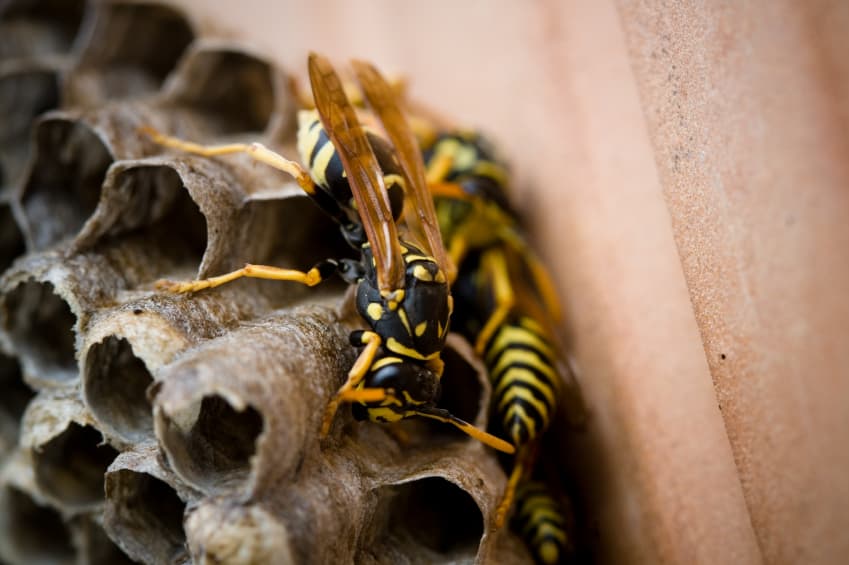It can be scary to see wasps around your house, especially if someone in your family is allergic to their stings. One of the first things you’ll have to decide when you have a wasp problem is whether to do it yourself or call a pest control service. We’ll talk about when you can do it yourself and when you should call a professional for wasp control.
-
Do It Yourself Wasp Control:
If you have a small wasp problem, you might save money by taking care of it yourself. Here are some situations in which doing it yourself might work:
- Only One Wasp: If you find just one wasp in your home, it’s usually safe to get rid of it yourself. You can get rid of or catch the wasp with a fly swatter or a wasp trap.
- Visible Nests: Homeowners can treat small, visible wasp nests that are easy to get to. There are aerosol wasp sprays that are made just for getting rid of nests.
- Safety and Confidence: You can try to get rid of the wasps yourself if you’re sure of your skills and aren’t allergic to their stings. Make sure you’re wearing safety gear like gloves, long sleeves, and a face mask.
-
Professional Control for Wasps:
When there are bigger or possibly dangerous problems, it’s usually best to hire professional pest control services. When you should get help from professionals:
- More than one Nest: It’s best to call professionals if you have more than one wasp nest on your land, especially if they’re in hard-to-reach or hidden places. Wasp nests can get bigger very quickly, so the problem needs to be fixed right away.
- Huge Colonies: Hornets, yellow jackets, and other social wasps live in huge groups that can have thousands of members. To keep such a big group of people under control, you need special tools and knowledge.
- Allergic Reactions: It’s important to call professionals for wasp control if you, a family member, or someone living in your home is allergic to wasp bites. Trying to handle things on your own could put your life in danger.
- Hard-to-Reach Places: Wasps often build their nests in hard-to-reach places, like under or under the eaves of a roof. Professionals have the right safety gear and tools to get to these places without harm.
- Repeat Infestations: If you keep getting wasps in the same spot, it means there’s a bigger problem going on. Pest control experts can look into the problem and fix it at its source.
- Safety Issues: It can be dangerous to work with wasps, and their bites hurt. You will be safe if you call pros because they know how to deal with these bugs without hurting you.
3. The third type is Integrated Pest Management (IPM):
Integrated pest management (IPM), which mixes different methods like prevention, monitoring, and targeted treatments, is becoming more and more popular as a way to get rid of pests. IPM techniques are often used by pest control experts. They try to use non-chemical methods as much as possible, which makes them an eco-friendly choice.
-
Preventive steps:
It is always better to avoid wasp problems than to deal with an invasion. To make it less likely that wasps will live near your home:
- Seal up any places that people can get into your home.
- Check your property often for signs of nest-building.
- Close trash cans all the way.
- Don’t leave food scraps or drinks with a lot of sugar outside.
In conclusion:
If you want to get rid of wasps, you should think about how bad the problem is, what kind of wasps are there, and what risks might be involved. Small nests that are easy to get to can often be taken care of by the homeowner. But if you have more than one nest, a big group, or safety concerns, it’s best to call a pest control company. They have the knowledge and tools to make sure the removal is safe and effective. When you’re not sure what to do, always put your safety and the safety of your family first.
Wasp Control Newmarket, We understand that wasps serve a vital role in our ecosystem as beneficial and visually striking insects. They contribute to pollination, control pests, and typically carry out their tasks without causing disruptions to humans.
